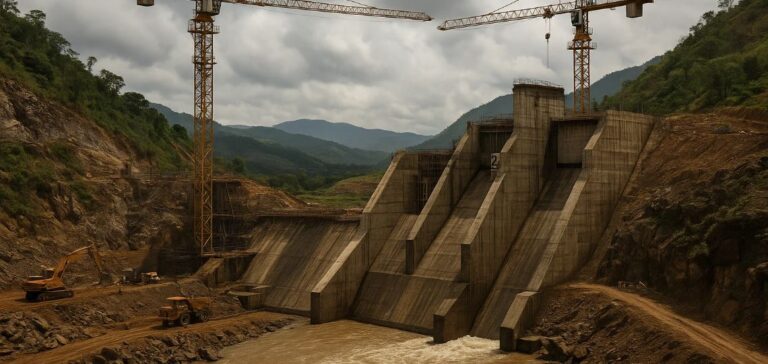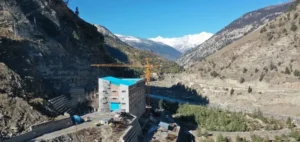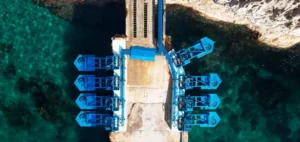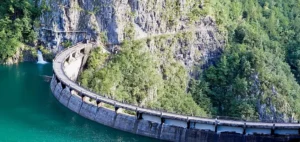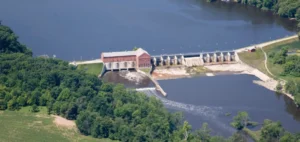French energy giant EDF has announced that it will take a stake in the Volobe hydropower project in Madagascar. This project, which represents an investment of over 500 million euros, aims to construct a dam on the Ivondro River, near Tamatave, 350 kilometers from the capital, Antananarivo. Expected to produce 120 megawatts, the dam is set to supply electricity to nearly 2 million people by the projected commissioning date at the end of 2030.
EDF’s participation will amount to 37.5% of the consortium, alongside the pan-African company Axian and the investment firm Africa50, which hold 37.5% and 25%, respectively. EDF Renouvelables, a specialized subsidiary of the group, will oversee the technical direction of the project, including feasibility studies, construction, and operation of the infrastructure.
Malagasy President Andry Rajoelina hailed the agreement as a significant step for the country, emphasizing that the dam’s construction could play a key role in improving access to electricity in a country currently facing limited energy coverage. According to French authorities, the project represents one-third of the country’s current electricity production and could also support the decarbonization of Madagascar’s energy mix.
Malagasy Minister of Energy Olivier Jean-Baptiste expressed confidence in the project, stating that EDF’s involvement would provide a “real boost” and enhance the project’s credibility with international lenders. The project also benefits from support from international financiers and a guarantee from the World Bank, ensuring robust funding for its execution.
A strategic investment for EDF and Madagascar
The Volobe project is part of a series of initiatives aimed at strengthening Madagascar’s energy infrastructure. The island, one of the world’s poorest, suffers from limited energy access, with less than 15% of the population connected to the power grid. The dam is expected to transform this situation by providing a stable and sustainable energy source for the years to come.
Leveraging its expertise in the renewable energy sector, EDF brings not only financial resources but also technical know-how to the project, a key asset for its success. The group has highlighted the importance of this project in its efforts to diversify its geographical presence and strengthen its footprint in Africa, while reaffirming its commitment to supporting sustainable energy projects globally.
Prospects for international financing
The project also benefits from a World Bank guarantee, which ensures international financing. This support is expected to accelerate the financing process and attract more lenders, which is crucial for a project of this scale. EDF’s participation, as a global leader in the energy sector, is also expected to strengthen investor and financial partner confidence.
The international financing for this project adds to other similar initiatives across the continent, as African nations seek to diversify their energy sources and improve electricity access in rural areas.


